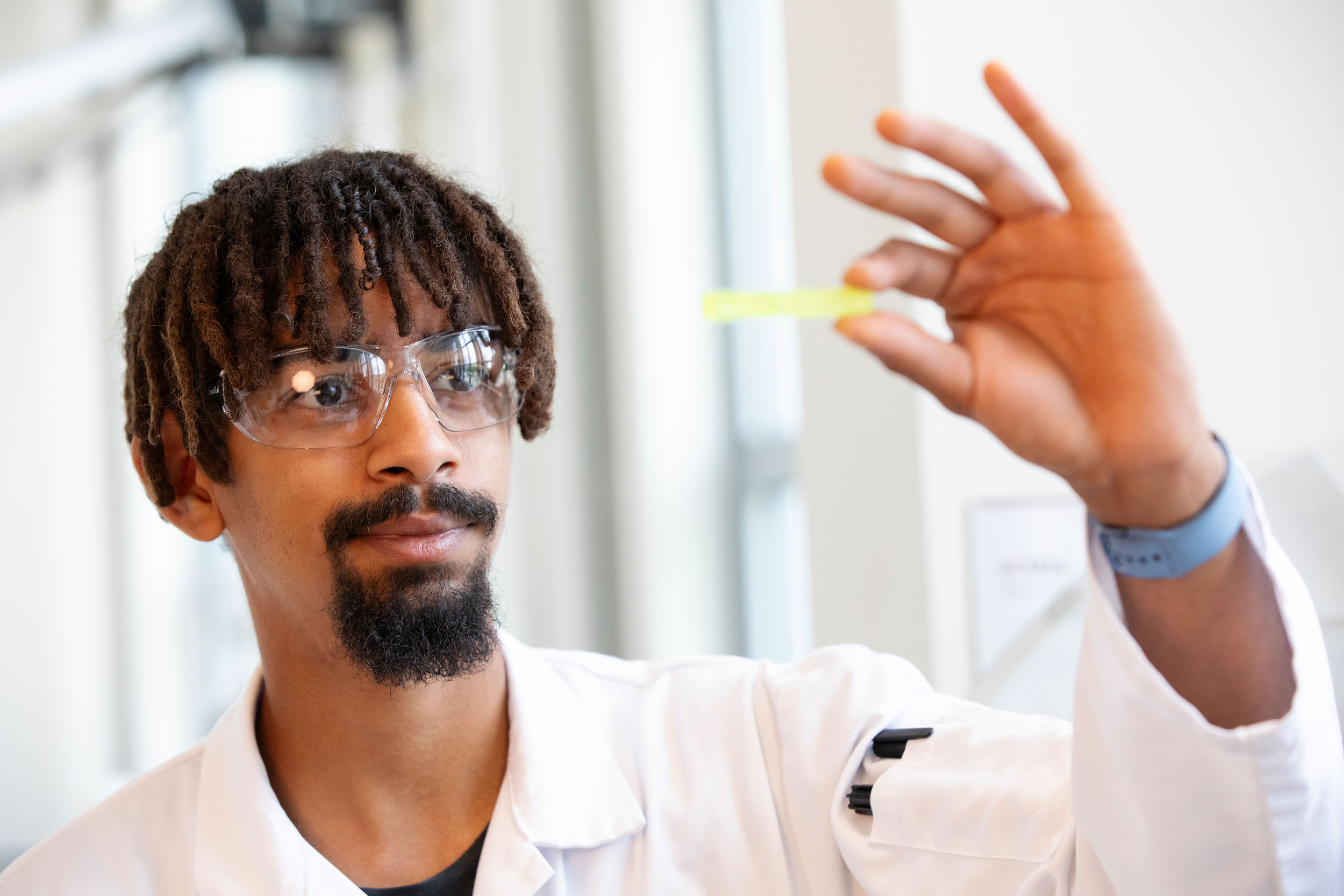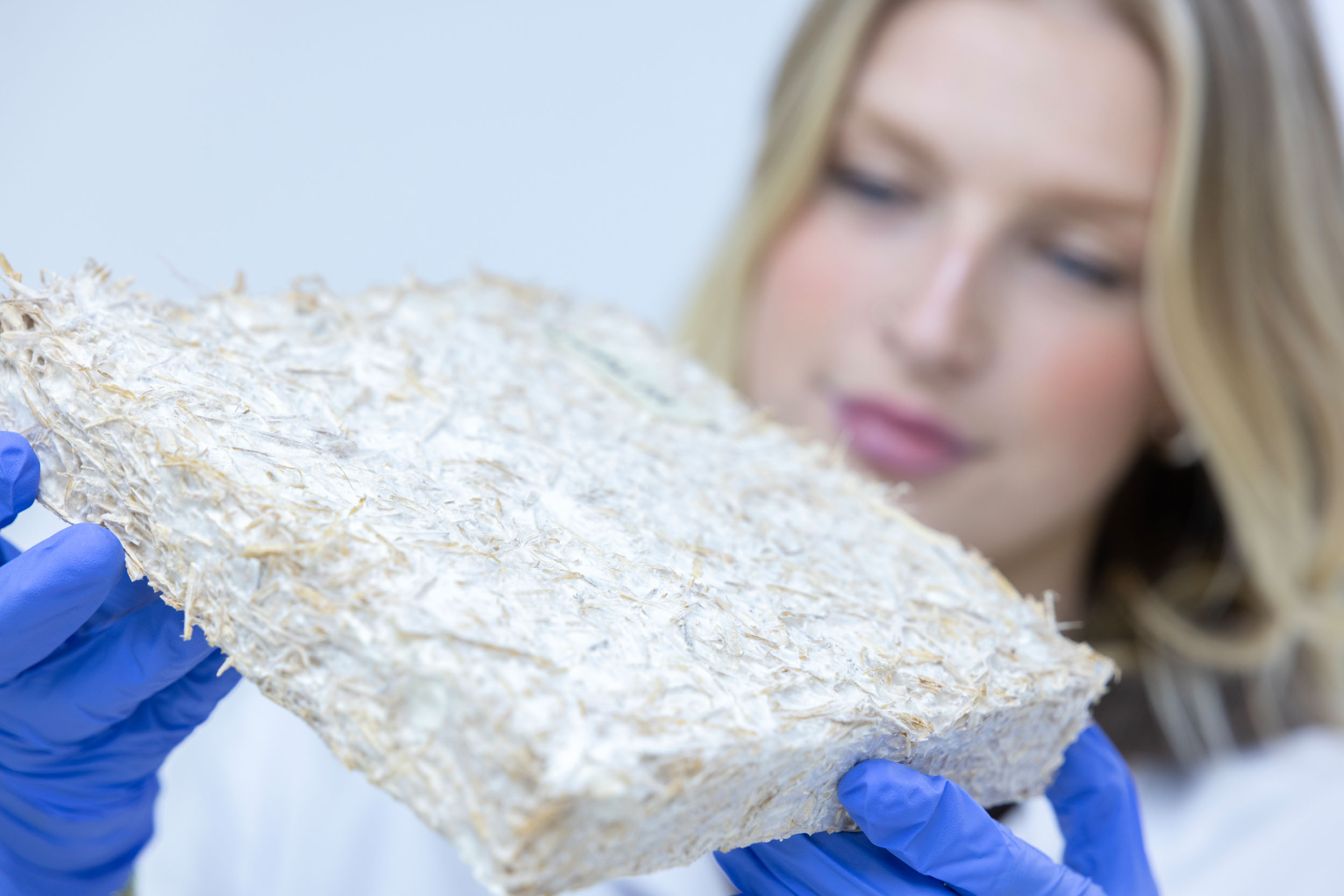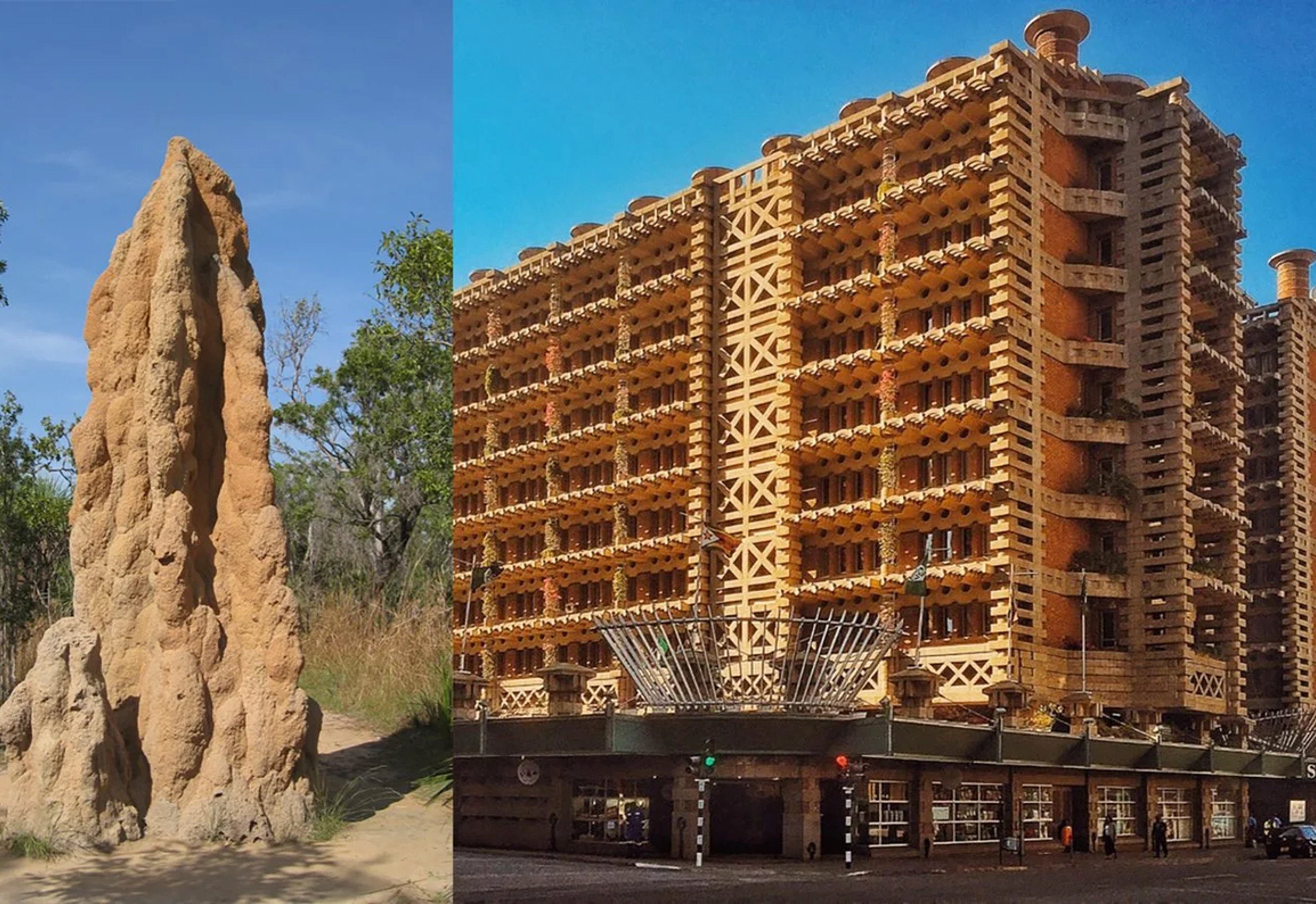From residual stream to raw material
Green waste from landscaping contains valuable biomass that often remains unused. MycoRenew investigated how fibres from wood, grass, and compost can be bound with mycelium to form a strong, biodegradable material. Researchers tested different mixtures to find the right balance between strength, moisture behaviour, and compostability.
The optimal composition turned out to be 75% wood, 12.5% compost, and 12.5% grass at 70% moisture content. This combination produced a pot that is robust enough for use yet gradually breaks down under natural conditions. The team also developed an image-analysis method to objectively measure mycelium growth — an important innovation for further research into biobased materials.
From lab to practice
The first prototypes are being tested within the InnovA58 programme of Rijkswaterstaat, where a test field has been established along the A58 motorway between Eindhoven and Tilburg to trial sustainable and biobased materials under real conditions. The mycelium pots are placed in the ground to monitor their behaviour in practice.
The results are promising. Although lab-scale production still requires relatively high energy use for incubation and drying, upscaling could significantly reduce the CO₂ footprint and make the process more efficient.
“MycoRenew demonstrates how local residual streams can be upgraded into useful products,” says project leader Fran Ortega Exposito. “The project combines applied research with real-world testing — from lab results to field trials.”
Learning by doing
Students played an important role in the project. Kirsten Brouwer, a Biology and Medical Laboratory Research student at Avans University of Applied Sciences, contributed to material development during her graduation internship. She tested different compositions and helped produce the first mycelium pots.
“After a few days you can see the fungus start to grow,” she says. “That moment when you see what you’ve created yourself — that was really exciting.”
For Kirsten, the internship was a valuable introduction to practice-based research. “I’ve become much more aware of the environment. When you work every day on something that reduces waste, you start noticing it more in daily life as well.”
Fungi as building blocks for the future
The knowledge gained in MycoRenew is being used for further research into biobased building materials and circular applications in outdoor environments. MNEXT and JvEsch are also exploring ways to apply regional residual streams in a wider range of products.
The mycelium pots were previously showcased at Dutch Design Week as an example of how design, biotechnology, and circularity come together. MycoRenew was funded by SIA KIEM GoChem and carried out within MNEXT, the Centre of Expertise for Materials and Energy Transition at Avans University of Applied Sciences.







